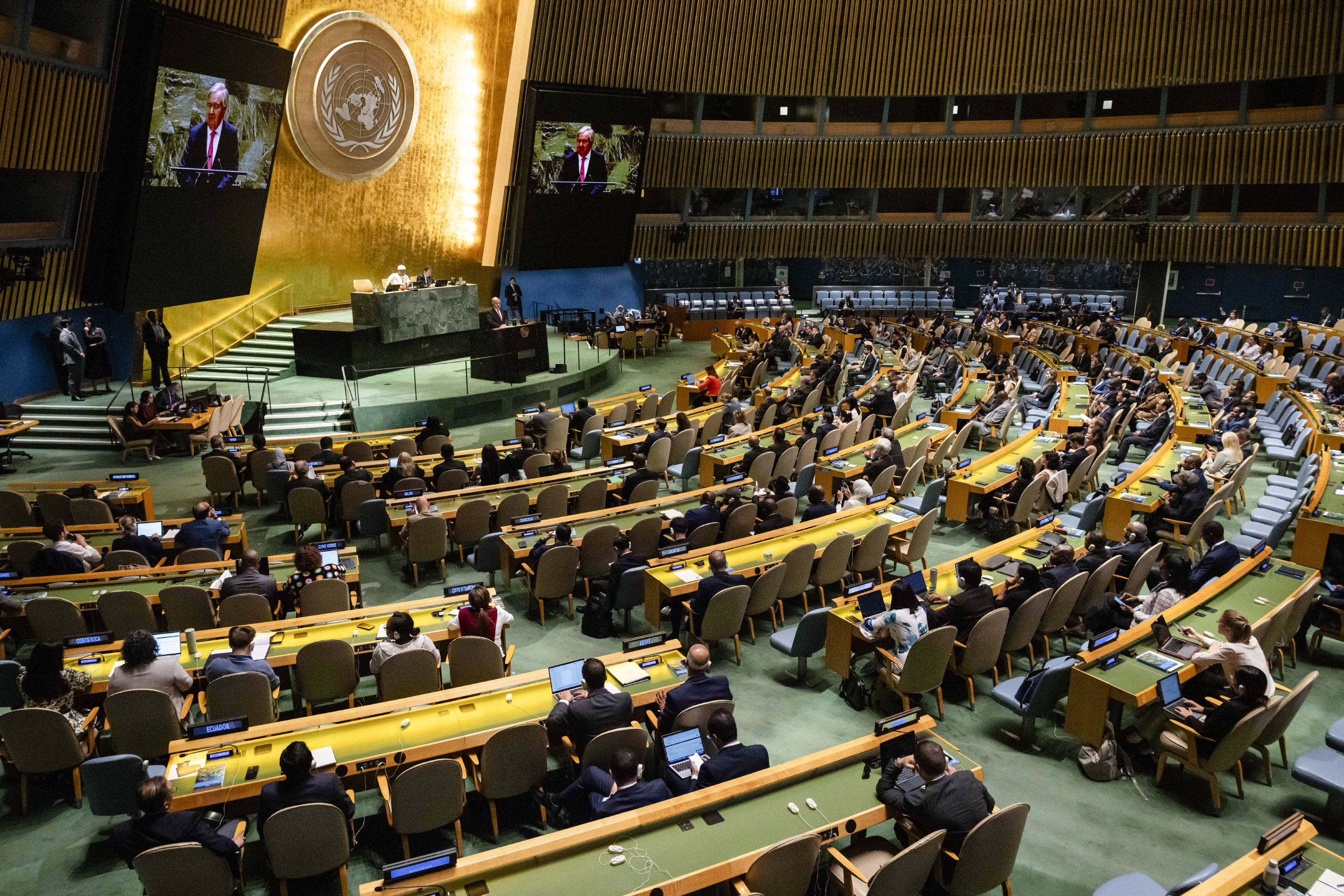Israel Bans U.N. Chief Guterres Amid Tensions Over Iran Attack
Israel has declared U.N. Secretary-General António Guterres as persona non grata, banning him from entering the country. The announcement, made on October 2 by Israeli Foreign Minister Israel Katz, comes in the wake of Guterres’ failure to unequivocally condemn Iran for its missile attack on October 1. The unprecedented strike targeted both military and civilian locations across Israel, forcing 10 million people into bomb shelters.
Although Guterres condemned the "broadening of the Middle East conflict," his omission of any direct criticism toward Tehran sparked sharp discontent from Israel. Katz remarked on social media platform X (formerly Twitter), stating, "Anyone who cannot unequivocally condemn Iran’s heinous attack on Israel, as almost every country in the world has done, does not deserve to step foot on Israeli soil."
On the same day, Guterres reiterated his condemnation of the attack during a U.N. Security Council meeting, according to Reuters. However, this statement did little to mitigate Israel’s frustration. Katz also pointed to the U.N. leader’s silence regarding the Hamas terror attack on October 7, 2023, which claimed the lives of 1,200 civilians and saw 250 more taken hostage. He further criticized Guterres for failing to push for Hamas to be officially designated as a terrorist organization.
Gilad Erdan, Israel’s U.N. ambassador, joined the chorus of criticism, calling for Guterres to resign due to his perceived inability to take a firm stance against groups like Hezbollah and Hamas.
Escalating Regional Tensions
The already strained relations between Israel and the U.N. have worsened amid the ongoing Middle East conflict, which reignited after the devastating October 7 attacks. Israeli Prime Minister Benjamin Netanyahu has since expanded Israel’s military objectives to include defeating Hezbollah in Lebanon, in addition to eliminating Hamas in Gaza.
In contrast, Guterres has repeatedly called for a cease-fire and international pressure on Israel to embrace a two-state solution—a vision Netanyahu has firmly rejected. The U.N. chief expressed deep concern as Israel ramped up airstrikes against Hezbollah in southern Lebanon, particularly after the death of Hezbollah leader Hassan Nasrallah in a targeted Israeli strike on September 27. Guterres urged restraint from all sides, warning that the region “cannot afford an all-out war.”
Israel’s leadership, however, has taken issue with the U.N.’s continuous appeals for cease-fires, with Katz accusing Guterres of indirectly supporting Iran, Hezbollah, and the Houthis. “Iran is the mothership of global terror,” Katz stated, emphasizing that any perceived leniency toward Tehran and its affiliates is unacceptable.
Iran’s Missile Strike
The catalyst for Israel’s anger came after Iran launched over 180 missiles toward Israeli targets on October 1. Despite the intensity of the barrage, which involved significantly more missiles than a similar strike in April, Israel reported zero casualties. According to the Pentagon, most missiles were intercepted, thanks in part to U.S. Navy destroyers deployed in the region.
Israel's military response was swift. “We are on high alert both defensively and offensively,” Israel Defense Forces spokesman Daniel Hagari stated in a national broadcast, vowing retaliation for the attack. Prime Minister Netanyahu echoed this sentiment, warning Iran that its actions were a “grave mistake” and that consequences would follow.
The U.N. Security Council convened an emergency meeting on October 2 to discuss the escalating conflict, with little sign of tensions easing in the region.
For updates on this ongoing situation, follow me on X: @dark_web24.

